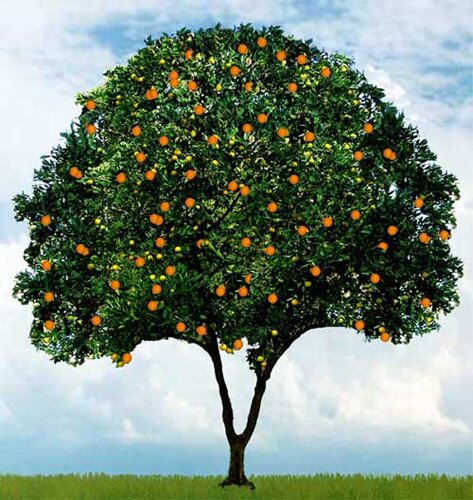One of these following facts about vegetables should make you shocked and surprised of what vegetables are. Vegetables are sometimes really important for body, but they also can be “dangerous”. What does it mean? However, these facts are about to share what function and nutrition the vegetables are going to give to the body. Otherwise, do you really know what vegetables are? Vegetable (singular), in culinary system, is an edible plant or its part, intended for cooking or eating raw. In biological terms, “vegetable” designates members of the plant kingdom. To get to know what vegetables are, here are other facts about vegetables you may like.
Facts about vegetables 1: Fruits and Vegetables
Vegetables are most often consumed as salads or cooked in savory or salty dishes, while culinary fruits are usually sweet and used for desserts, but it is not the universal rule. Therefore, the division is somewhat arbitrary, based on cultural views.
Facts about vegetables 2: Raw Consumable Vegetable
Some vegetables can be consumed raw, while some, such as cassava, must be cooked to destroy destroy certain natural toxins or microbes in order to be edible. A number of processed food items available on the market contain vegetable ingredients and can be referred to as “vegetable derived” products.
Facts about vegetables 3: Nutrition
Vegetables are eaten in a variety of ways, as part of main meals and as snacks. The nutritional content of vegetables varies considerably, though generally they contain little protein or fat and varying proportions of vitamins such as Vitamin A, Vitamin K and Vitamin B6, provitamis, dietary minerals and carbohydrates.
Facts about vegetables 4: Low Calorie
Vegetables are low in calories. Potato has 322 kJ per 100 grams, Red tomato 74 kJ, Cucumber 65 kJ. Other famous staple foods like what and rice are in the 1400-1500 range.
Facts about vegetables 5: Nutrients
Vegetables are full of vitamins, nutrients and minerals. Their presence boosts our immune system, regulates our metabolism and enables us to live healthier and longer.
Facts about vegetables 6: Recovery
If our body is lacking certain vitamins or nutrients, vegetables are perfect way to recover them. For example, potato is an excellent source of Vitamin C and Vitamin B6, garlic has a lot of Manganese, spinach has Vitamin A, and cabbage is full with Vitamin K.
Facts about vegetables 7: 2010 Production
In 2010, worldwide production of potatoes reached 324 millions of tons, tomatoes 145 million, sweet potato 106 million, dry onions 74 million, and spinach 18 million.
Facts about vegetables 8: Medicinal Properties
Vegetables have excellent medicinal properties. Because they are so widespread and come in many different varieties, they are able to cure us from many Illnesses and remedies. Our ancestors saw those benefits, and included vegetables and their ingredient into medicine from the earliest days of modern human civilization.
Facts about vegetables 9: Metabolism
Vegetables can regulate our metabolism, protect skin, help our bones, bloodstream, heart, guts, reduce risk of cancer, preserve our eyesight and much, much more.
Facts about vegetables 10: Orange Carrots
Orange carrots were first introduced during 17th century in Netherlands as a tribute to the ruling house of Orange. Many modern vegetables are also created through selective breeding, enabling them to become easier to grow, produce and have better ratio of healthy and unwanted components.
Those who love to eat fruits and vegetables should consider those facts about vegetables really important to read, especially when they feel sick. Eating vegetables will recover their health. Hope you would find those vegetables facts really interesting and useful for your health.









 www.PortlandPayday.Loans
www.PortlandPayday.Loans